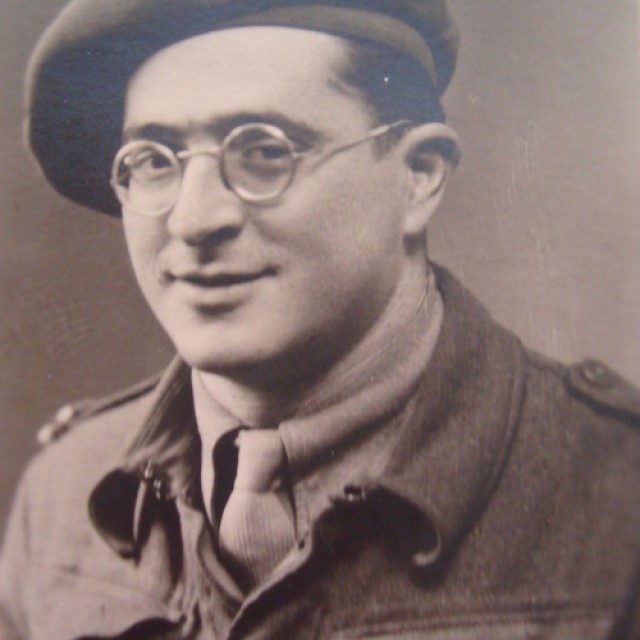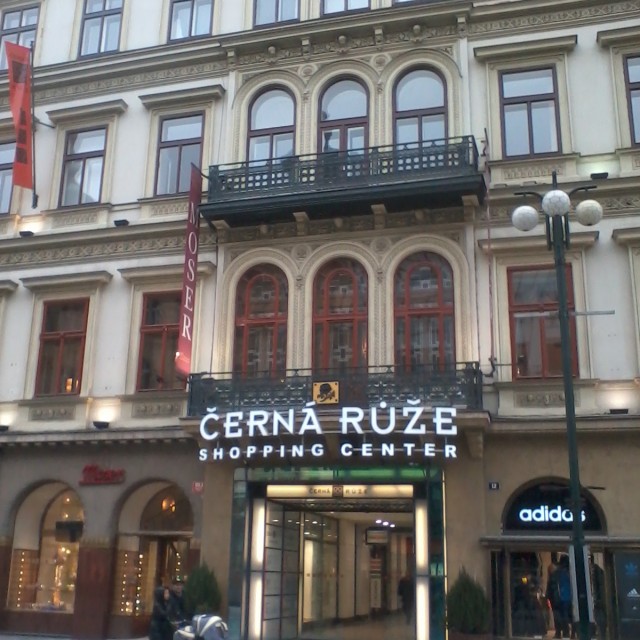Ticket to Palestine
Bedřich Utitz was born to a Jewish family in Vienna. They moved to Prague in 1931, but a serious reason to leave home again arose just several years later: After the formation of the Protectorate, many Jews tried to escape the closing Nazi trap and emigrate to safety. The legal opportunities for leaving were very limited – an illegal remained the last resort. And this was the opportunity that Bedřich (aged 19) chose to take. By coincidence, a friend told him about a company owned by two Slovak Jews, Lébl and Guttman, residing in the Černá růže passage and organising illegal trips to Palestine. Utitz and his family paid a considerable amount to use the service, and the night train trip to Vienna and then a boat trip along the Danube went well. Bedřich went on to join the Czechoslovak forces at a later date, and fought at Tobruk and Dunkirk.
Hodnocení
Abyste mohli hodnotit musíte se přihlásit!
Trasy
Příběh není součastí žádné trasy.
Komentáře

Bedřich Utitz
ptain in retirement Bedřich Utitz was born November 20, 1920 in Vienna in a Jewish family of Czech origin. In 1931 the family moved to Prague. At first, Bedřich spoke only German and he attended a German school. On April 30, 1939 he learnt about the Black Rose from his classmate, and the whole family thus got to Palestine via the Danube River and the Black Sea. He wanted to apply for the Foreign Legion there, and later for the Czechoslovak army which was being formed, but he was turned down in both cases. He was admitted to the army only in 1942, and with the 200th antiaircraft regiment he participated in the defence of Tobruk. Thanks to his having graduated from a secondary school, he was admitted to an officers´ school in Haifa, and following his admission he did not take part in the fighting for Tobruk any more. Together with other Czechoslovak soldiers he sailed to England, where he was assigned to the Anti-tank battery and later he took part in the siege of Dunkerque. In January 1945 while on a scouting party, he was arrested by Germans and taken to a prison in Dunkerque, from where he was released only in April through the International Red Cross in exchange for German prisoners. In 1946 he began working in the Czech Press Agency and he was appointed as a correspondent in the Soviet sector of the divided Berlin. In 1949 he transferred to Telepress, led by Bedřich Geminder, and as he himself says, "it was merely a disinformation department." After its breakup in 1952 he was unable to find employment for half a year due to his Jewish origin, and he eventually found a job as a librarian and documentalist in the Institute for Experimental Surgery in Prague-Krč. Thanks to his friend he then got employed in the Czechoslovak Radio in 1954, where he became the head of the German broadcasting service of the foreign department, and the chief of the central department of foreign broadcasting. In 1963-1965 he was working for the foreign broadcasting department in Cuba, where he was absolutely unneeded, as he says. After his return, his name was on the GDR´s blacklist due to the "socialism with human face" which was then in progress and due to his journalistic involvement, being in the position of the head of German broadcast. Thanks to references from friends, fellow journalists, in 1968 he got to Cologne, where he together with politologist Adolf Müller founded a samizdat publishing house Index in 1971. They published over 200 books, and although their mutual collaboration later became complicated, Index kept publishing till 1989, when it lost its primary purpose as a publishing house for samizdat works. After the Velvet Revolution, Utitz was working for the newspapers and magazines Svobodné slovo, Lidové noviny, Přítomnost, Listy or Týden. In 2005 he returned to the Czech Republic for good, at present he lives in Prague. In 1998 president Václav Havel decorated him with the Order of Tomáš Garrigue Masaryk.



